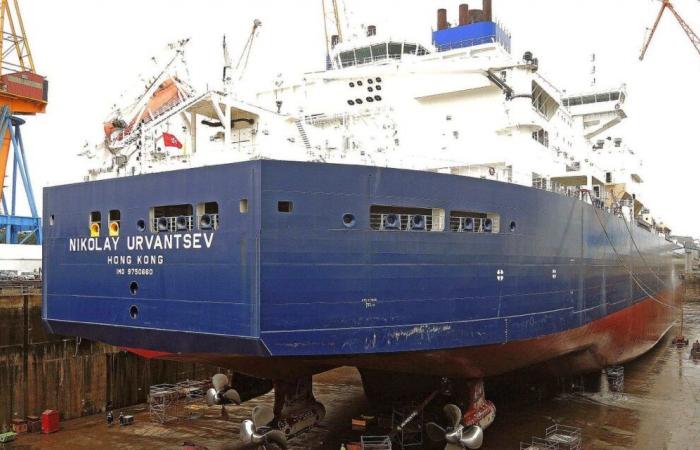
The majority of the ships in question are used to transport liquefied gas exported by Russia. According to Disclose, eight are ice-breaking LNG carriers providing transport and access to the port of Sabetta, in the Russian Arctic (Yamal Peninsula, 2,500 km from Moscow), whose waters are frozen for up to nine months per year. This $27 billion gas site, created in the middle of the Arctic desert, inaugurated in December 2017 and in which the French group TotalEnergies is heavily invested
is of strategic importance for Russia. One: it is a first exit door for the immense energy resources to be exploited in this isolated Russian region. Two: the site will considerably contribute to developing the Northern maritime route, made more accessible by global warming, which reduces access to the coveted Asian market by 15 days on average, compared to the route passing through the Suez Canal. .
Not trivial ships
Without these very precious icebreakers (fifteen were in service in 2019), unique in the world, no access to the site, which represents billions of euros in revenue for the Russian government… which it can re-inject into the war against Ukraine. Without Brest, and without another port in Denmark (Odense), icebreakers would be forced, to carry out maintenance and repairs, to go as far as Asia, to the rare shipyards suitable for these ships, resulting in a considerable loss of time. and additional costs that Disclose estimates at “between 1.9 million and 4.4 million dollars per ship”.
The arrival of the Shtandart, a simple replica of an 18th century Russian frigate, at the Brest maritime festivals last summer, raised a hell of a controversy. Substantial measures had been taken to prevent it from docking. There, although this is not symbolic and we are even talking about something very heavy, not a word. Nobody flinches…
For the Shtandart, a “controversy of all devils”
This would be a way to hurt the Russian economy. But the European Union has not yet adopted this possible sanction. Everything is therefore perfectly legal, as the Atlantic Maritime Prefecture and the General Secretariat for the Sea point out in Télégramme.
“Legal, but perfectly immoral”, slips, bitterly, one of the helpless observers of this ballet, which evokes “a purely economic logic”. And who notes: “The arrival of the Shtandart, a simple replica of an 18th century Russian frigate, at the Brest maritime festivals last summer, raised a hell of a controversy. Substantial measures had been taken to prevent it from docking. There, even though this is not symbolic and we are even talking about something very heavy, not a word. Nobody flinches…”
Hundreds of jobs in Brest
The ships in question are being maintained and repaired in Brest by a world-renowned specialist: the Damen shipyard. Established in Brest since 2012, when it bought the Brest Ship Repair Company (Sobrena), the Dutch company Damen is, according to several sources, gambling on its survival with these contracts. Locally, Damen generates nearly 200 direct jobs and several hundred others indirectly, via subcontractors. Without these contracts, the port of Brest would also, according to our sources, be “heavily impacted”… while nearly a billion euros of investments have just been announced there for the next 40 years.
Sanctions: what effects?
The Brittany Region, owner of the port of Brest (and 21 other Breton ports), also reminds us, and again: “Brest has never welcomed and does not welcome any ship affected by European sanctions”. All those contacted take refuge behind legality and refuse to go into the realm of morality. Only the United Kingdom has taken this step and refuses to welcome the ships which allow Russia to fuel its war effort. Refusal which would have directly benefited the Brest shipyard.
As for the European sanctions – the 14th part of which fell last June – intended to suffocate and isolate Russia, what impact do they have? Putin's country earns almost 600 million euros every day, through its hydrocarbon exports alone, and posted a growth rate of 4.7% in the first half of 2024. Very, very far ahead of Europe. The war in Ukraine would cost Russia $300 million a day.
TotalEnergies is still a shareholder in the Yamal LNG project (20%), the second Arctic LNG2 project, and the main player in these files, the Russian company Novatek.
France





